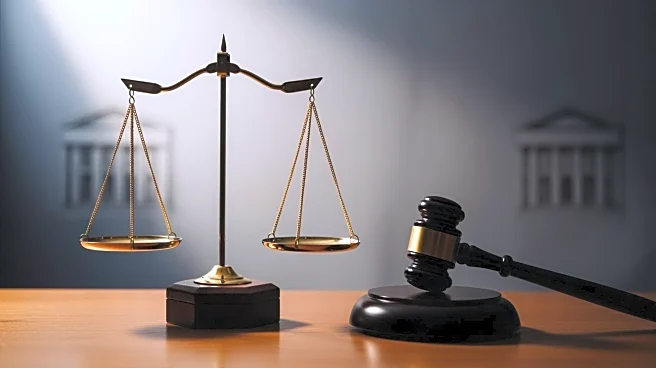What's Happening?
A Maryland judge has denied a motion from U.S. officials to delay the deportation case against Kilmar Abrego Garcia due to the government shutdown. The case involves efforts to deport Abrego Garcia to another
country, specifically Eswatini, formerly known as Swaziland. Maryland U.S. District Judge Paula Xinis has ordered an evidentiary hearing and requested the government to present witnesses to testify about the steps taken to deport Abrego Garcia. Abrego Garcia was initially deported to El Salvador in March but returned to the U.S. in June to face human smuggling charges in Tennessee. His attorneys have accused the government of vindictive and selective prosecution, suggesting that senior DOJ and DHS officials may have influenced the charges in retaliation for his Maryland lawsuit.
Why It's Important?
The denial to delay the case highlights the judiciary's role in maintaining legal proceedings despite external factors like a government shutdown. This decision underscores the importance of judicial independence and the need for accountability in government actions. The case also brings attention to issues of deportation and human smuggling, which are significant in U.S. immigration policy. The accusations of vindictive prosecution could have implications for how similar cases are handled, potentially affecting the relationship between the judiciary and government agencies. The outcome of this case may influence future legal strategies and government accountability in deportation and prosecution cases.
What's Next?
The evidentiary hearing ordered by Judge Xinis will proceed, requiring the government to present evidence and witnesses. This hearing could reveal more details about the government's actions and motivations in the case. Depending on the evidence presented, the case could set a precedent for how similar cases are handled, particularly in terms of accusations of vindictive prosecution. The government may need to provide substantial evidence to counter the claims made by Abrego Garcia's attorneys. The outcome of this hearing could impact Abrego Garcia's legal standing and future deportation proceedings.
Beyond the Headlines
The case raises broader questions about the balance between government authority and individual rights in deportation cases. It also highlights the potential for legal challenges to government actions, especially in cases involving accusations of selective prosecution. The implications of this case could extend to discussions on immigration policy and the treatment of individuals facing deportation. Additionally, the case may influence public perception of government accountability and transparency in legal proceedings.










